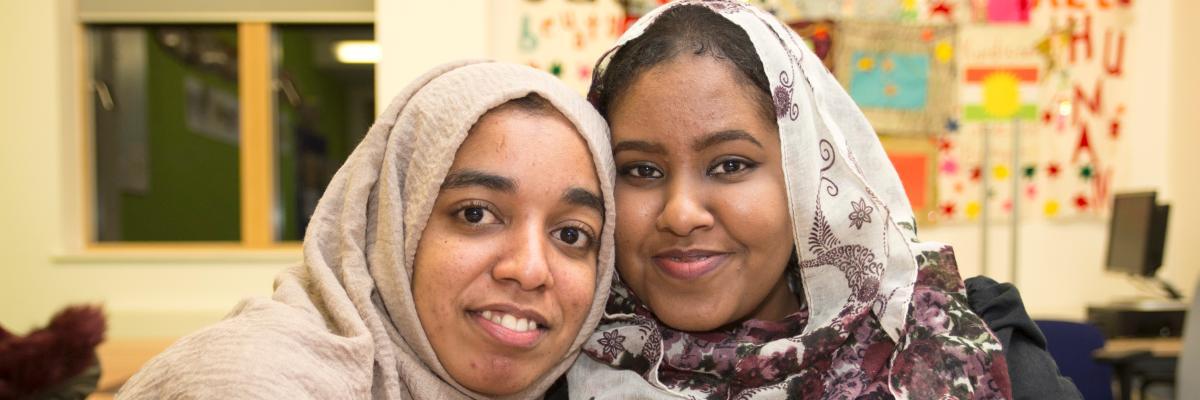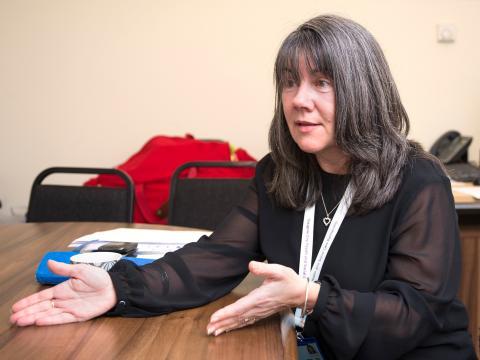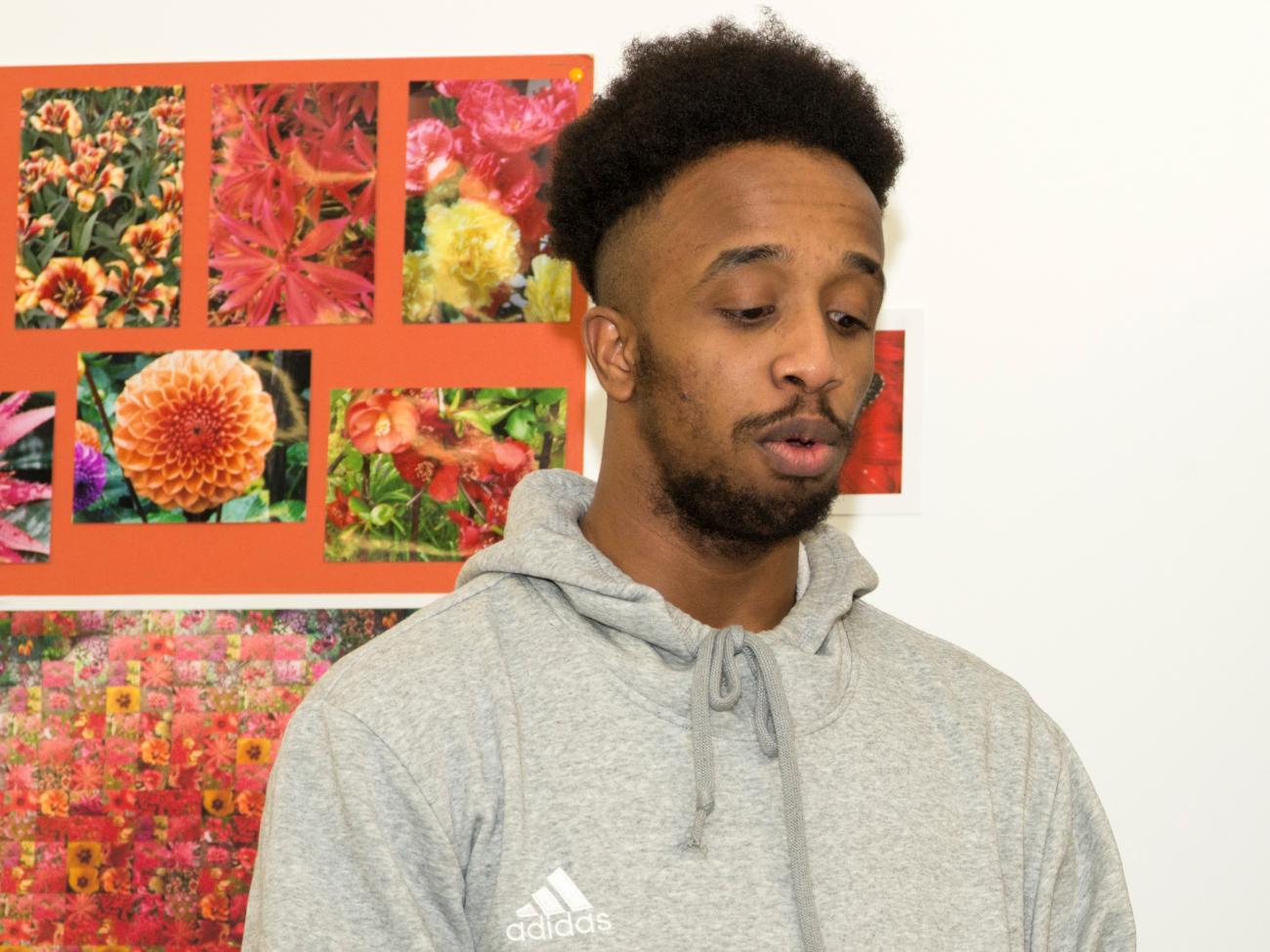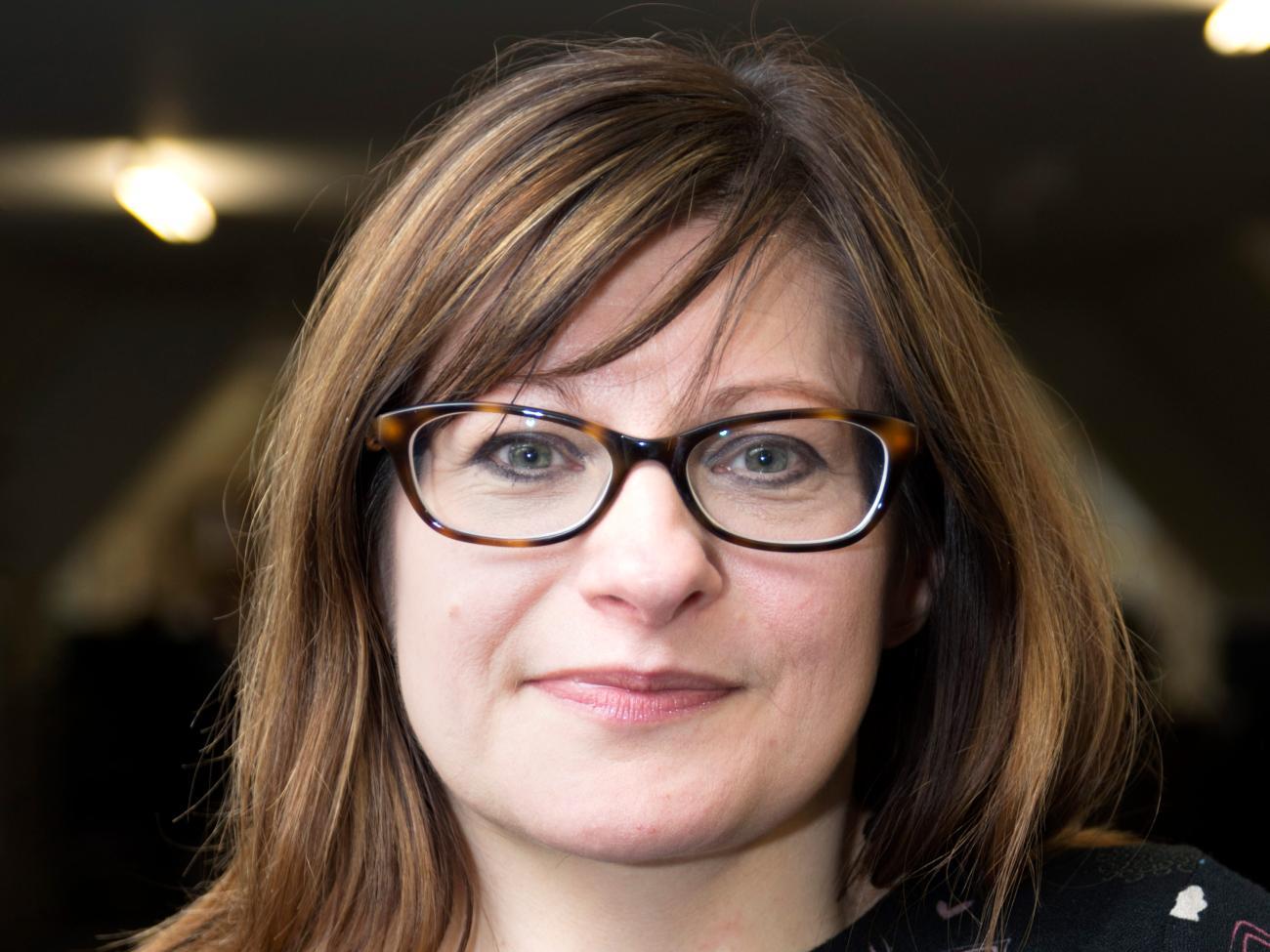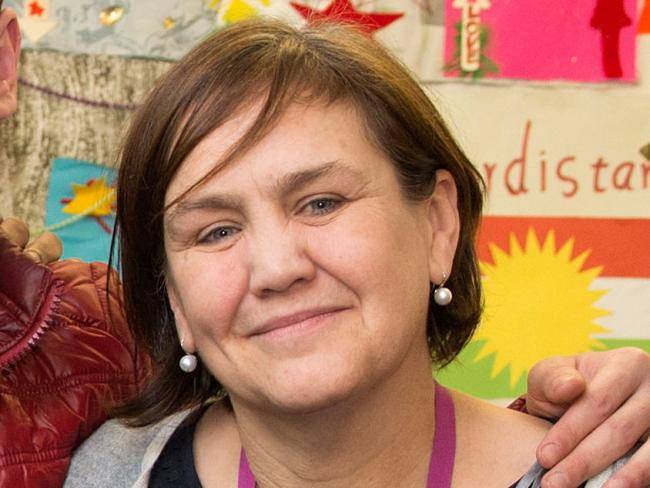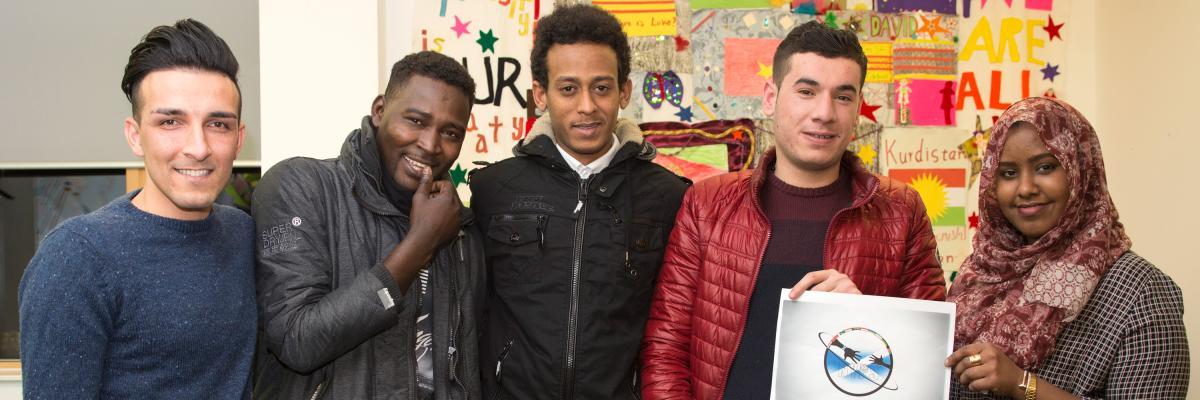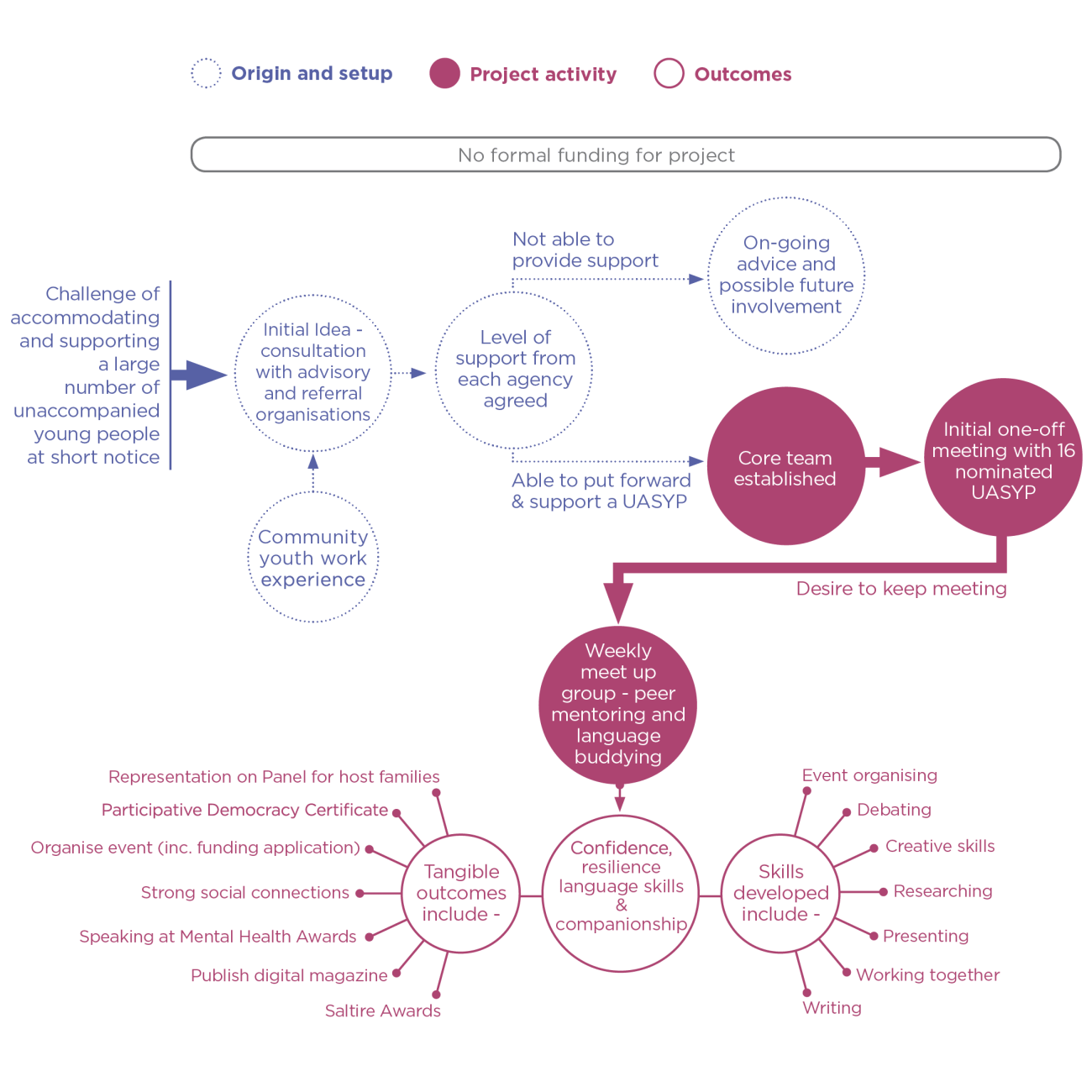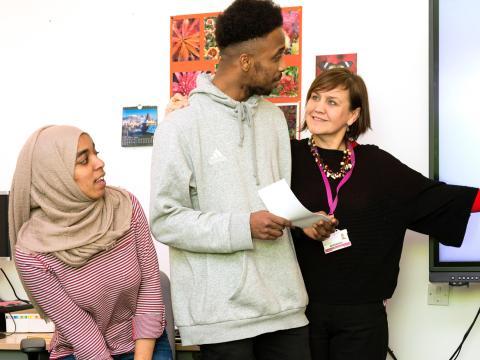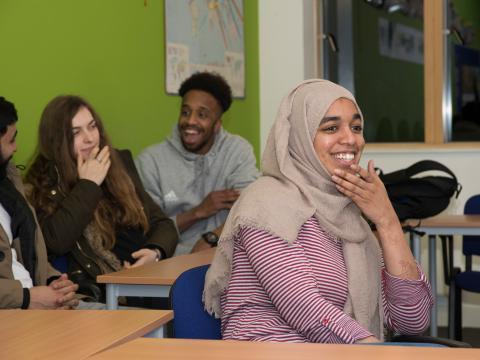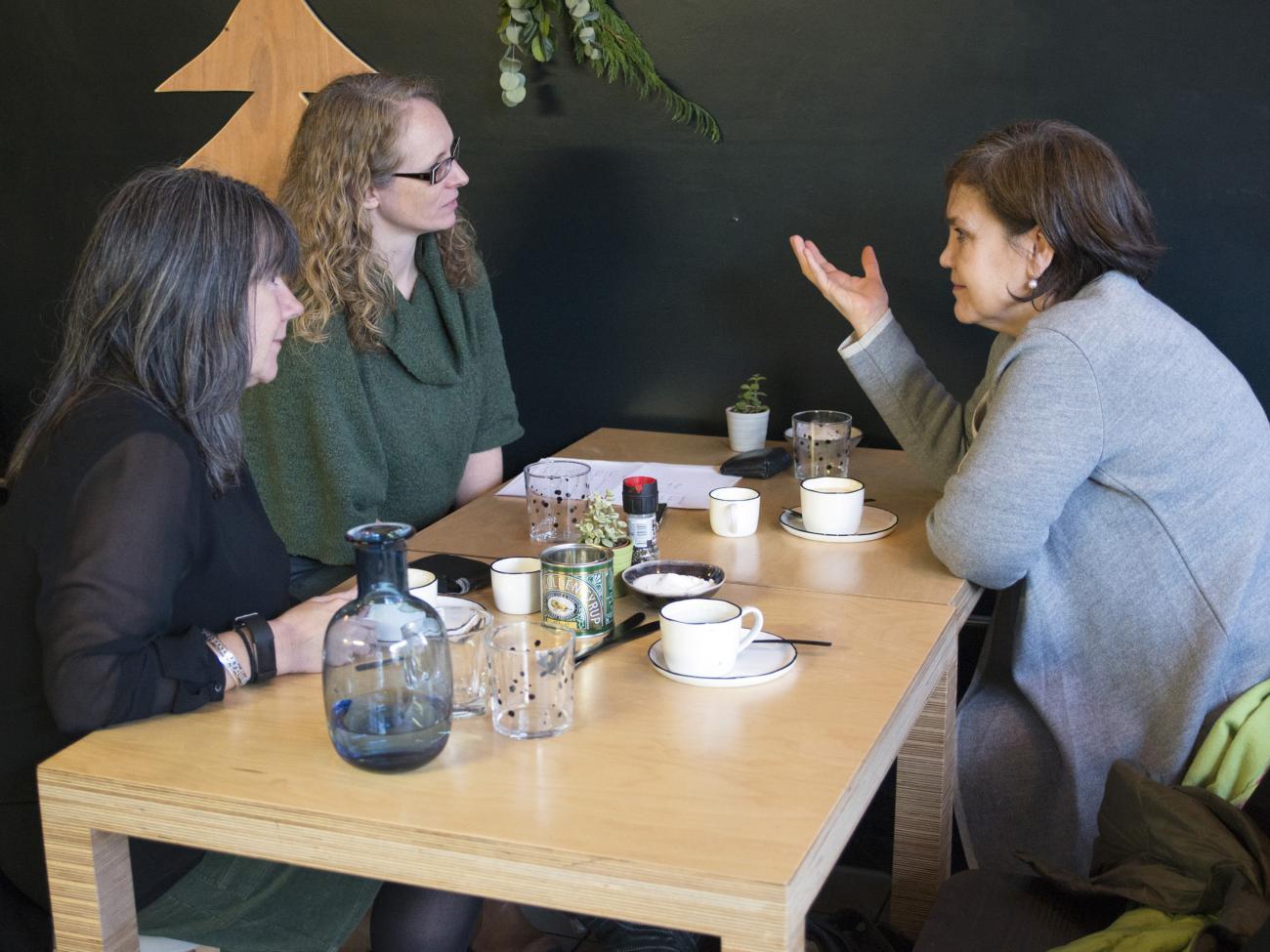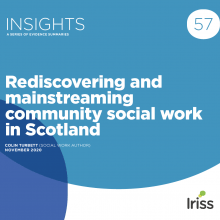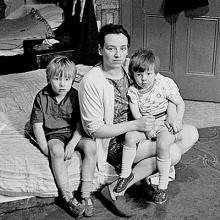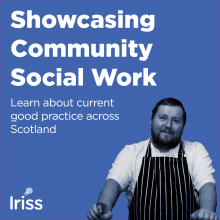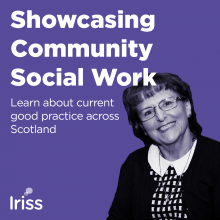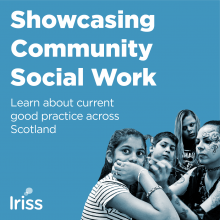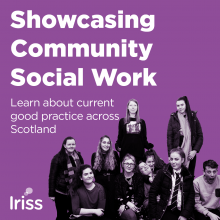This is one of seven case studies that celebrates what ‘community social work’ is and has to offer.
It demonstrates how working closely and in partnership with communities makes the best use of resources, generates new capacity and greater agency, builds resilience, and supports preventative approaches that make a real difference to people’s lives. It also has much to offer at a time of reduced public spending and pressure on services.
A peer mentoring and support network initiated by the Asylum and Roma Children and Families Team at Glasgow City Council, and co-produced with the young people themselves. It aims to help new arrivals to settle and grow in their new environment.
Lorraine Ward, social worker in the Asylum and Roma Children and Families Team at Glasgow City Council, initiated the mentoring programme. A number of circumstances helped to bring it about. Firstly, Lorraine was new to the team, so an initially low caseload gave her the opportunity to look at up-coming challenges and consider a proactive approach. In this case, it was the anticipated arrival in Glasgow from Calais of 70+ unaccompanied asylum seeking young people (UASYP). The city had accommodated smaller numbers in the past, but did not have the systems and structure in place to support a larger number arriving all at once. Secondly, Lorraine’s background in youth group work made a group approach a natural consideration, rather than attempting one-to-one support. Thirdly, the management of Lorraine’s team was supportive of providing more flexible and creative solutions to challenges, so she had the space to develop, trial and adapt the initiative. Finally, as she began discussions with other agencies involved in supporting the young people, Lorraine found an appetite for something along the lines of the mentoring scheme, which had until then, lacked the resource for development.
Having received encouraging first responses, initial engagement was sought from a number of agencies dealing with asylum seekers. Because there was no additional funding available, there was a requirement that any agency putting a young person forward for the initiative had to stay involved with the programme overall. At that stage, some organisations dropped out, unable to commit the time or budget that would be required. They have stayed involved in other ways, with the option of referring young people in future if the group expands and the organisation’s capacity allows.
From the initial consultation three key individuals came together – Lorraine Ward from social work; Vicki Burns from the third sector youth organisation, YPeople; and Lyn Ma, senior ESOL (English for Speakers of Other Languages) lecturer at Glasgow Clyde College (Anniesland Campus).
The team planned to develop a peer mentoring programme. The idea was to have young people mentoring others going through similar experiences - arriving in Glasgow as an unaccompanied minor seeking asylum and having English as a second language. Their experiences give them a unique ability to be able to help others in similar situations to their own as they arrive in a new country and city with no friends or family around them.
Vicki’s role at YPeople is that of Peer Mentoring Coordinator for young people with care experience. YPeople generally requires a level of intensive support that could not be resourced for this programme. Lyn co-ordinates and teaches on a specialist ESOL programme for unaccompanied 16-19 year olds. Many of the young people who are now involved in peer mentoring were former students on this programme.
The team began with a consultation in May 2017. Unaccompanied asylum seeking young people of diverse ethnicities and experiences, were referred from a range of organisations, and came together to meet with the team. Their ages ranged from 16 to 24 years, with most 18 or 19 years old. Following the initial meeting there was an enthusiasm to continue. Three additional sessions followed as the young people were keen to share the barriers, supports and knowledge they had gained since arrival in Glasgow. They reported that they found the process of sharing, participating and being valued for their strengths and aspirations as something they wanted to develop. In addition, they were enthusiastic about training to support others. It has resulted in a weekly group.
As mentioned, YPeople's peer mentoring model is supported by a dedicated coordinator. However, that resource hasn’t been available for this project, so Vicki has adapted and delivered the training to suit the group, which they believe is the first time this has happened in Scotland (see appendix).
The young people have travelled from Iraq, Iran, Somalia, Eritrea, Congo, Albania, Syria, Afghanistan, amongst other countries and have named their group New Young Peers Scotland (NYPS). The group is discovering and re-connecting with their individual skills and aspirations - from computing, art and writing to gardening and architecture - through NYPS.
As part of the set-up, it was agreed that all members needed to speak or be learning English. There is no need for interpreters which is a source of motivation, inspiration and pride for all involved. It also means they all have a common language. Studying ESOL courses gives the young people an initial context for the mentoring programme and Lyn’s existing relationship with a number of group members (as students or former students) has provided a natural route in, building on existing trust.
'As a team, Vicki, Lorraine and I are all very open to input from each other', Lyn reflects, 'and with the young people we have ‘grown-up’ discussions about mentoring and how that can work.' That openness and honesty rest on the trust built up across the whole project.
Most of the young people are currently attending Glasgow Clyde College. This was chosen as a shared ‘safe space’ which they could use, with familiar surroundings and strong and reliable relationships.
There is no cost to the young people to attend the group - the support team seeks budget from social work for snacks and for ad hoc travel needs. The greatest investment to date has been the team’s time, which is required so that the group is enabled and not ‘set up to fail’. Time also ensures that they progress in achievable steps. The supporting team is very careful to protect the group from over-exposure – as a ‘ready made’ diverse and capable group it would be easy for them to be called upon to make up the numbers on other projects, but possibly at the expense of what they are trying to achieve themselves.
It seemed to make sense that you’ve got young people who have been through this experience, have been in Glasgow for a period of time, who have learned English, improved their knowledge and skills and who have the potential to help other young people. I don’t think any of us anticipated how it would evolve, but everyone was enthusiastic about creating something that didn’t exist, but made perfect sense.
Lorraine Ward
Asylum and Roma Children and Families Team
Glasgow City Council
At first I really hate Glasgow… but then people show me the good way in Glasgow… I start to believe that home is where the heart is. Now my heart is here. Glasgow is my home.
Musa Adam
NYPS Group Member
As there has been no specific funding for this project and therefore no targets to meet, we’ve been able to completely co-produce with the group from the beginning.
Vicki Burns
YPeople
Peer Mentoring Coordinator
Results
The results seen stem from two main areas – the growth in confidence of the individuals, and the strength of the relationships formed. These elements have enabled the group, individually and collectively, to achieve a great deal in its first few months of existence:
- 22 members were awarded the Saltire Award in September at the City Chambers in Glasgow. As a group they are also working towards their Participative Democracy Certificates, using their skills, knowledge and language.
- Some of these young people have produced their own animated video Scotland Our New Home in conjunction with Lyn, Mercedes Richardson and an independent filmmaker about their experiences in coming to a new city:
- A further video Meet the New Young Peers Scotland Group has been created with Young Scot:
- They are currently developing their own digital magazine, on topics ranging from the practicalities of living in a new city and culture and shopping and cooking on a budget, to women’s rights.
- Representatives of the group spoke at a November 2017 mental health youth work conference – a huge achievement to present confidently to strangers on an emotive topic, in their recently attained second language.
- At time of writing the group were preparing a peer mentoring event to promote what they are doing.
For some of the young women in particular, access to education, the freedom to make choices for themselves and building the confidence to make those decisions has marked a step change in their personal development.
Aileen Shaw from Families for Children speaks very positively about the involvement of group members on their panels. These assess the suitability of families for other young people in similar circumstances to their own. For homing young adults, a kinship model is used, which is less prescriptive than fostering but still requires hosts to be approved as suitable.
'We had a huge public response in the search for suitable hosts, from all backgrounds,' Aileen recalls, 'and even after narrowing it to those who met the criteria there was still a considerable number to assess. When we were setting up the panels for approval and recommendation of these hosts, we thought it was really important to have a young person on there. We really wanted to get their opinions, questions and views.'
In implementing and developing the council’s approach to its corporate parenting responsibility, the contribution of the group member added a new angle. 'It has been a huge learning opportunity for us, seeing what they pulled out as important as opposed to what we might have focused on without their input. They would come out with comments like, ‘I could live with that family’,' says Aileen.
For the individuals taking part, they see their views being valued. 'They love that they are being asked - they are being valued. Particularly for the three girls who have taken part, their views and opinions were not sought previously, so it has been really empowering for them in particular.'
One of the NYPS panel contributors explains what it meant to her: 'I was giving the emotional side – how a new young person would feel in that family. I thought it could be bit of pressure, but Lorraine worked a lot with me to help me to do it. I was the very first person – I hope I made a good impression!'
It should be noted that in order to enable these young people to fully participate in the panel process, a considerable amount of one-to-one support was required. This work was undertaken by Lorraine and as Aileen has indicated, the benefits were evident for all those involved. However, in seeking to replicate these outcomes it must be understood that full and valued participation does not happen unless young people are fully enabled. In this case that meant language and emotional support, as well as preparation and explanation of the process and purpose, so the young people felt safe and confident enough to contribute.
The strongest endorsement is perhaps how the group feels collectively – on more than one occasion we heard them describe each other as ‘their family now,’ which gives an indication of the strength of the bonds that have been formed and the warmth and regard they hold for each other.
A big part of my role has been in making sure the young people all understand what is being said to them - even if they look like they’ve understood they may not have caught the detail. That’s a benefit of having an ESOL background.
Lyn Ma
Senior ESOL lecturer 16+ Programme
Glasgow Clyde College (Anniesland Campus)
Quotes from the NYPS young people
On peer mentoring
We’ve all been in that situation – what they’ve been through and how they’re feeling. It gives me a good feeling, we can help them in a good way.
We want to help other young people like us, to ease their pain – we know the struggle of coming to a new country alone.
We want to share our experience, our ideas and our knowledge.
What’s changed for you since joining NYPS?
I didn’t speak well and I was shy – but now I’m normal! I’ve learned some Glaswegian!
I’m happy – I’m meeting a lot of people from other countries, getting new friends, improving my English – everything is getting easier.
I’m more comfortable to be around the opposite sex now, it’s really nice.
I’ve got a few friends and I can help them. I’m very happy.
It helps a lot that we are just like a group of friends.
This is my family now.
What would you say to encourage someone to join NYPS?
Come! Please come!
They’ll improve their English, they’ll be confident, they’ll decide like an adult. For me, the person before and the person now is very different.
It can help decide on your future. We get to do a lot of stuff, so it can guide you a little bit.
For Lorraine, Vicki and Lyn the benefits of the group have been the achievements of the individuals, the increased resilience of the group as a whole and the improved understanding they have as professionals of the challenges facing young, unaccompanied asylum seekers.
Mapping the development and influences
It is important to note that all of this has been achieved to date without any formal budget allocation. The group leaders have run sessions within their day-jobs and are very willing to offer additional voluntary hours during the week and at weekends. For the residential courses they have been fortunate to be given space and accommodation for free by existing contacts. In addition, they were successful in getting funding of £500 for their residential at Allanton World Peace Sanctuary, which offered the space at a considerably reduced rate.
The enthusiasm of those providing the support for the group is a measure of their belief in the programme and their commitment to the young people as individuals. It is recognised, however, that for the project to be sustained or extended over the long-term, additional resource is required.
It’s about taking the time, there’s no quick fix. People get funding for a year, and I can understand why, but it takes you six months to build relationships, to understand the issues.
Lyn Ma
Senior lecturer
English for Speakers of Other Languages (ESOL)
Glasgow Clyde College
What worked well and why
Peer mentoring had been the initial aim, but it became clear early on that there were personal development areas to be considered before one-to-one mentoring. However, although the medium-term goal has changed, much has been achieved in the first seven months. The flexibility of the model has been instrumental in facilitating responses to the group’s evolving needs and wishes.
Despite different backgrounds and experiences of asylum seeking, the young people have more than enough common experiences and enthusiasm to be able to provide relevant, inspiring support to each other. Learning English is part of the journey and is something that the group members are all proud of, aiding their ability to adapt to life in Scotland.
Speaking to the group, it’s clear that they feel ownership of it and the input of Vicki, Lyn and Lorraine is co-productive and collaborative. There is also a strong sense of commitment to each other. As individuals and as a collective group, they are flourishing. The discussions around the mentoring plans are very open and honest – Lyn describes them as ‘grown up discussions’ – and all parties are open to input from each other when they are working on.
There is an understanding from all parties (including the professional service providers) that listening to and learning from each other is key.
Building the credibility of the initiative has been important in being able to move the whole thing forward. Promoting and increasing awareness within their organisations of the achievements to date has given the programme credibility. This, in turn, allows them greater scope to do what needs to be done.
Wider benefits
The self-sustaining nature of what is believed to be a unique project means that it could be replicated with relative ease in other areas. This would allow newly arrived asylum seekers elsewhere in the country to access support and opportunities and help ease their transition into their local community.
In addition to the benefits to the UASYP themselves, the professionals involved are developing their understanding of better ways to engage, cultural barriers, and how to help individuals to get the most from the initiative. This helps professionals better support them, so that the young people can turn their very difficult personal experiences into sources of strength and confidence.
Further to this, the programme has helped social work and other agencies to uncover cultural awareness and training gaps that should be addressed by service providers.
Challenges
The biggest lesson has been recognising the need to be flexible and responsive in adapting the design of the programme as the strengths and needs of the group have emerged. A rigid plan would not have worked and may have disenfranchised the group.
One-to-one mentoring is still an aim, but the group experience of collective learning, sharing and growth through peer support is where the real strength of the initiative lies at present.
Challenges have included not being able to meet up over the summer months. Most of the young people are in school or college, so they have free travel during term time, but funding is required. Their usual meeting place (the college) is also closed over the holidays, so they were grateful to YCSA for space there over the summer. Some of the young people are now involved with that organisation too as a result.
A further challenge is the amount of activity that takes place beyond the day-jobs of the core team. All give their time willingly, but it is an element to consider, both in terms of resourcing or expanding the project long-term, and for any organisation wishing to replicate the model.
Future plans
A group of the young people have visited Young Scot and will be applying for funding to host an event as part of the Year of Young People in 2018. This will give them a platform to help spread understanding of what they are doing and achieving, as well as increasing the diversity of the Year of Young People forum itself.
For the current group, the aspiration is to train others as new mentors and so expand the group. It is expected that the group will evolve over time and Lorraine is happy to ‘take the risk of it evolving’ into whatever the group needs it to become. They have successfully applied to Youthbank South for funding for their next stage, voted for by other young people through a participatory budgeting event.
There are two possible routes for development – to continue as is and build on a group-by-group basis, or to build a more formal structure with management, support and formal funding. As this is a new venture there is no model to base the latter on at present, so it would also require development time.
This type of programme could be replicated in other locations, but the attitude of the personnel running it will be absolutely key to its success. Lorraine’s key points for anyone setting up this type of initiative:
- Ensure those involved in running it have a shared value base
- Be prepared to be creative
- Ensure the young people have the biggest voice
Key points
Important aspects of the project’s development:
- Pick the right team and supporting agencies – the programme requires leaders with enthusiasm, the ability to respond and a desire to engage with the individuals in the group
- Trust and relationships – these need time to grow and are the basis of everything else
- Collaboration – work with each other and the young people to decide on the priorities and direction of the group
- Flexibility – the willingness and ability to respond, change and adapt quickly and to challenge boundaries
- Commitment and being prepared to invest time in the programme – particularly in the early stages of set up, but longer term too
- Staying focused – be aware of potential dilution of purpose; focus on the core aims, revisit them over time and be explicit about everyone’s right to say ‘no’
- Celebrate successes - encourage the young people to share their achievements and build on them
Appendix
Peer Mentoring Project Training Programme
Week 1 - Introductions and the peer mentoring role
Participants explore the role of peer mentor and how they can help children and young people experiencing challenges. Participants establish the qualities and skills required by a peer mentor.
Week 2 - Communication skills to help mentoring
Participants will have developed their communication skills to assist them in the peer mentoring role.
Week 3 - Saltire presentation
Week 4 - The mentoring process
Participants will be confident that they could help their mentee set goals using techniques like GROW and Skilled Helper.
Week 5 - Dealing with issues as a peer mentor
Participants are clear about the boundaries they need to put in place as a peer mentor and confident they can deal with challenging situations they might find themselves in as a peer mentor.
Week 6 - What happens next?
Peer mentors are encouraged to feedback any information they would like to go over again or something we haven’t thought of. Participants are clear about going forward as a peer mentor.
Acknowledgements and thanks
Thanks to everyone who contributed to this research project. With particular thanks to Lorraine Ward - Glasgow City Council Social Work, Vicki Burns - Peer Mentoring Coordinator for YPeople, Lyn Ma - Senior lecturer (ESOL) at Glasgow Clyde College and Aileen Shaw from Families for Children. A huge thanks to all the members of New Young Peers Scotland Group for being so open and welcoming to us.
This document has been prepared for Iriss by Fay Purves CMRS of Creative Art Works CIC, a Community Interest Company. Unless otherwise stated, design and photography is by Lindsay Snedden LBIPP of Creative Art Works CIC.
We would also like to thank the Community Social Work Advisory Group members for their valuable input to this work: Trisha Hall (Scottish Association of Social Work), Stuart Hashagen (independent), Andrew Gillies (Social Work Scotland), Graham McPheat (University of Strathclyde), Keith Moore-Milne (Glasgow City Council), Kerry Musselbrook (Chair & Project Lead, Iriss), Liz Timms (SASW member), Colin Turbett (social work author and activist).
For more information about this work contact Project Lead: kerry.musselbrook@iriss.org.uk
